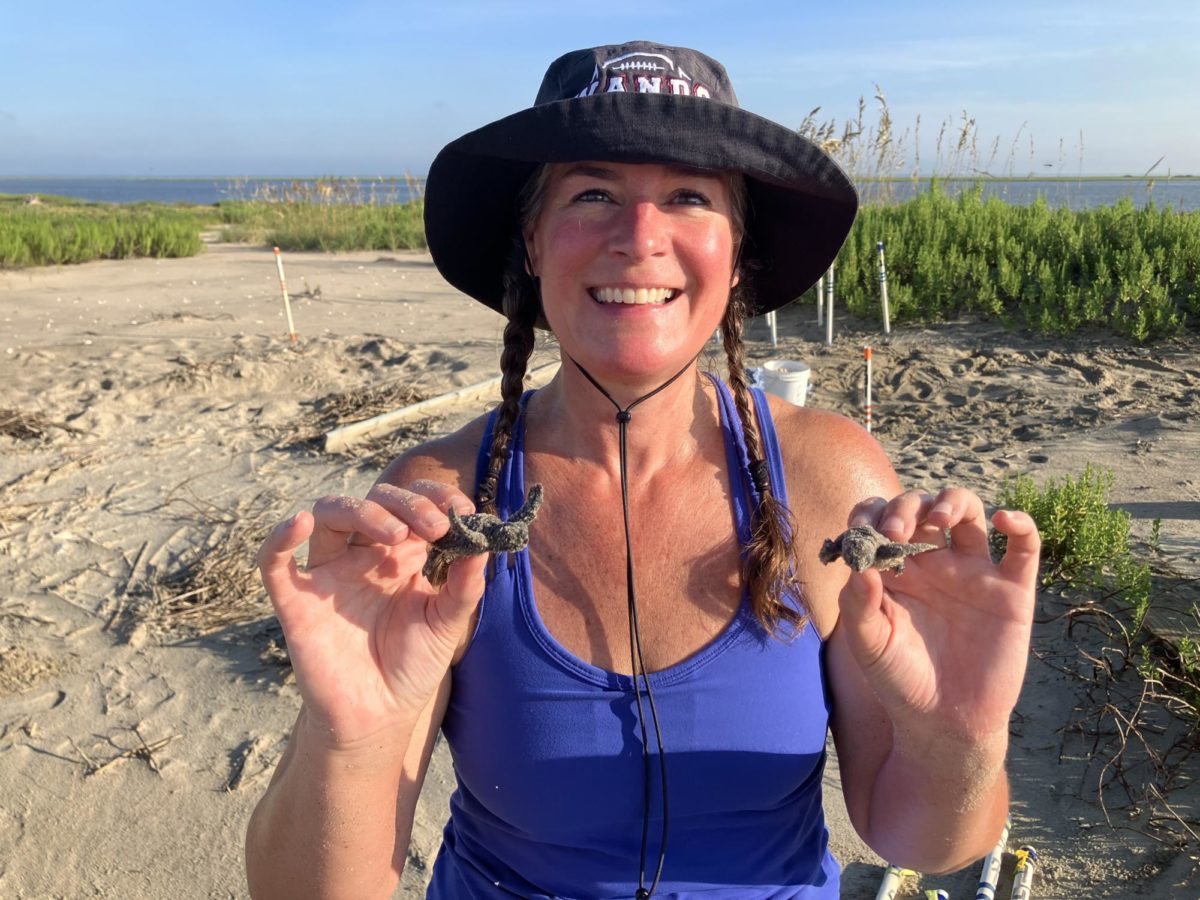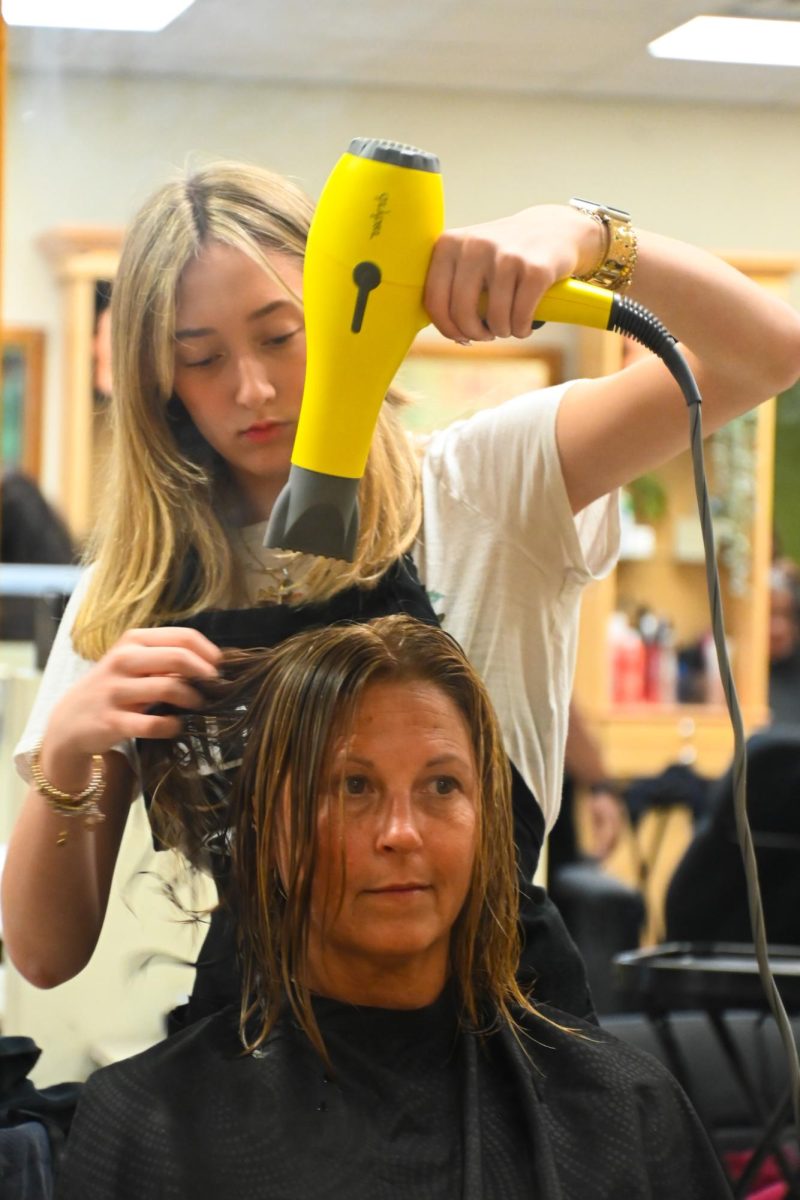When Mary Pringle sees a mother turtle struggling her way up the beach, freshly salty flippers pushing down on the sand with all the strength in her body, it puts her at peace.
“[It’s] very special,” Pringle said. “and very spiritual.”
Pringle is the project leader for the Turtle Team on Isle of Palms and Sullivan’s Is- land.
There are teams known as loggerhead conservation teams that work by monitoring loggerhead nests and tracking when the mothers lay their eggs. These loggerhead conservation teams all work for the common goal of sustaining the loggerhead population.
Associate principal Gretchen Looney, is a volunteer on the U.S. Fish and Wildlife Ref- uge Team, specifically working on Cape Romain near McClellanville. This team focuses on keeping the nests of these loggerhead turtles safe from not just predators, such as raccoons and minks, but the elements as well.
“I leave my house and it’s still dark and we meet the rangers in McClellanville, jump in the forestry boat, and run out to the refuge,” Looney said.
These early mornings for Loo- ney are tiring yet rewarding.
“The first thing we do is run up and down the island on four wheelers and we look for fresh turtle tracks,” Looney said.
The team must first look for where the mother has chosen to lay her nest.
Once the team has located the nest, they must decide whether this will be the safest place for the eggs to develop.
“If it’s in a safe place…we take the longitude and latitude of that site and we take a genetic sample from an egg,” Looney said.
The point of this practice is to track which mothers are laying eggs and possibly what generation of turtles these eggs are.
“We send an eggshell from each nest to the Department of Natural Resources and they send it to the University of Georgia where the scientists identify each turtle,” Pringle said.
This project has been going on for 13 years to document how many times a certain turtle nests, or if a second generation of a turtle is beginning to nest.
“We put cages around the nest then we put a stake behind it, and a PVC pipe with a number on it so we can identify the day it was laid,” Looney said.
However, if the mother turtle lays the eggs in an unsafe place, the team must plan to move it. “We count them in packs of 10, put them in a bucket, cover them with a towel, do our best to keep them in a shaded area and then we transplant them to a safer place,” Looney said.
These safer places, Looney explains, are called Turtle Gardens. The team uses a metal screen to protect these gardens from predators, whereas the individual nests will be protected by cages.
Looney describes the work these groups do as vigorous; the job starts with early mornings followed by long, hot days that include backbreaking work.
“It takes a really dedicated group of people,” Diane Krishon, a biology teacher said.
Krishon used to participate in the program as well.
Looney has long held a passion and interest in sea turtles. So, when the opportunity arose to volunteer and help these animals, she took it. Although the work can be difficult, they are greatly rewarded.
“I asked my husband if he’d be interested, and we signed up and we’ve been doing it for five years now and just absolutely love it,”
Looney said. “We’ve seen sharks and menhaden and sometimes there are beautiful rainbows and sundogs.”
The beauties of nature makes this difficult job well worth it.
“But there’s nothing like seeing those little hatchlings,” Krishon said.








